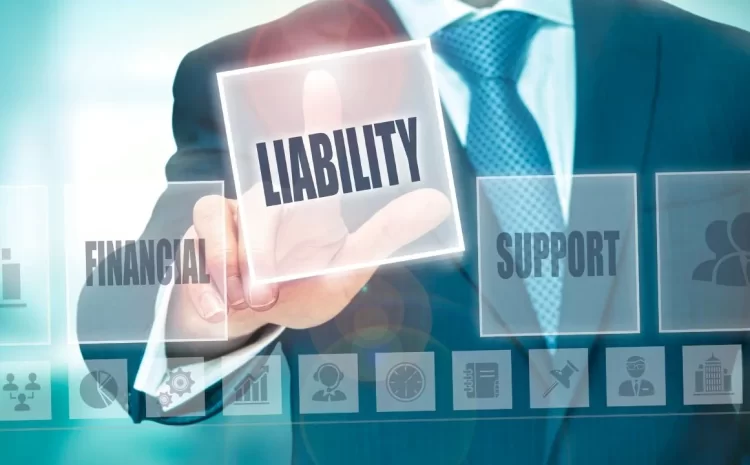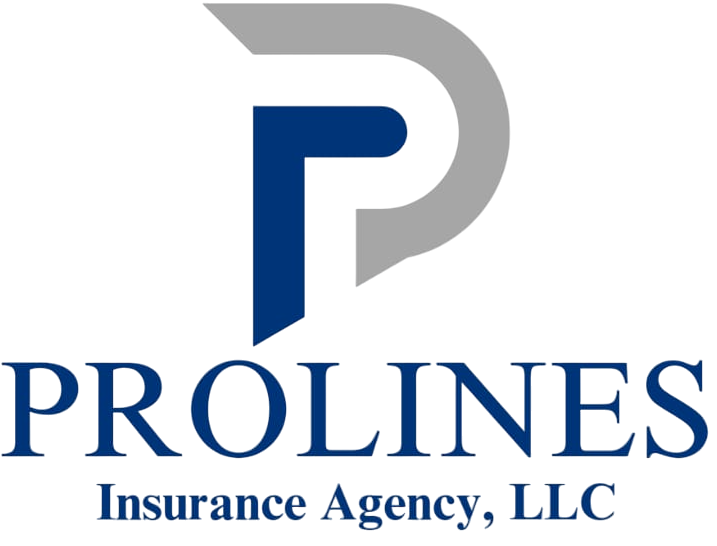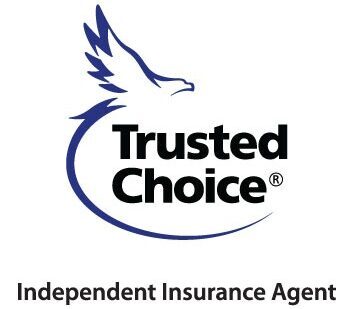
General Liability Insurance Florida: Your Small Business & LLC Guide
I. Introduction: The Indispensable Role of General Liability Insurance in Florida
Florida’s vibrant business landscape offers incredible opportunities, but it also comes with unique risks. From bustling storefronts to on-site service calls, operating in the Sunshine State means facing potential challenges. This is where general liability insurance in Florida steps in as a vital safeguard for your business. Often known as Commercial General Liability (CGL), this essential policy protects you from common yet potentially devastating third-party claims.
In this guide, we’ll break down exactly what commercial general liability insurance Florida covers and why it stands as a non-negotiable asset for your risk management strategy. Tailored specifically for small business owners and LLCs, we’ll cover everything from understanding coverage details and navigating legal requirements to exploring typical costs and offering expert tips on choosing the best policy. Our goal is to help you ensure your general liability insurance Florida small business is robustly protected against unforeseen incidents.
II. Understanding General Liability Insurance: What It Covers and Why It Matters
General liability business insurance Florida is your foundational protection against claims of bodily injury, property damage, and personal and advertising injury caused to non-employees (like customers, vendors, or passersby) due to your business operations, products, or premises.
Here’s a detailed look at what this crucial coverage includes:
- Bodily Injury: This covers expenses related to injuries sustained by third parties on your business premises or as a direct result of your business activities.
- Scenario Examples: Imagine a customer slipping on a wet floor in your retail store and breaking their arm, or a client tripping over a loose rug in your office.
- Coverage: Your policy would cover their medical expenses, rehabilitation costs, lost wages, and crucially, your legal defense costs and any settlement payments if the injured party sues your business.
- Property Damage: This part of your policy covers costs associated with accidental damage to property belonging to someone else.
- Scenario Examples: If your landscaping crew accidentally breaks a client’s sprinkler system while working, or a plumbing technician causes a pipe to burst, damaging a client’s drywall. It can also cover accidental damage you cause to property you rent for your business.
- Coverage: General liability insurance small business Florida pays for the repair or replacement of the damaged property and covers associated legal fees if the property owner pursues legal action.
- Personal and Advertising Injury: This often-overlooked aspect protects your business from specific non-physical injuries that can arise from your business communications and marketing.
- Scenario Examples: Claims of libel or slander (making false statements that harm someone’s reputation), false arrest, or even copyright infringement if you unknowingly use copyrighted material in your advertising without permission.
- Coverage: This protection covers legal defense costs and settlement payments resulting from such claims, which can be just as financially devastating as physical injury or property damage lawsuits.
It’s important to note what general liability insurance in Florida typically doesn’t cover. It usually won’t cover professional errors (that’s Professional Liability), employee injuries (that’s Workers’ Compensation), damage to your own business property (that’s Commercial Property Insurance), or vehicle accidents involving your business autos (that’s Commercial Auto Insurance). As you’ll see in Section VII, a full insurance strategy often involves multiple policies.
III. Is General Liability Insurance Required in Florida? The Legal Landscape and Practical Necessity
A common question for new entrepreneurs is whether general liability insurance in Florida is legally required. The answer is nuanced: it is not universally state-mandated for all businesses. However, this doesn’t mean it’s not essential; for many, it’s a critical necessity driven by specific industry regulations, local ordinances, and practical business realities.
Specific Mandates and Requirements:
- Florida Contractors: This is a major exception where Florida general liability insurance is indeed a legal prerequisite. Contractors requiring licensure through the Florida Department of Business and Professional Regulation (DBPR) must carry specific minimum amounts of general liability insurance Florida to obtain and maintain their licenses. For instance, certified General and Building contractors typically require $300,000 in public liability and $50,000 in property damage coverage. You can verify these specific requirements and licensing details on the official Florida DBPR Website.
- Local and County Ordinances: Many cities and counties throughout Florida have their own specific requirements for business licenses, permits, or certain types of operational compliance. It’s crucial to check with your local government offices (e.g., city clerk or occupational license office) to understand any specific local mandates for general liability insurance in Florida.
- Client and Landlord Requirements: Even without state or local mandates, it’s incredibly common for commercial landlords, major clients, or contractual partners to require you to carry commercial general liability insurance Florida before you can sign leases, bid on projects, or start work. They will almost certainly ask for an ACORD 25 Certificate of Liability Insurance as proof. Without it, you could miss out on significant business opportunities.
Why It’s Still Essential (Even Without a Statewide Mandate):
Florida is known for being a litigious state. The sheer volume of business activity, tourism, and the state’s legal framework mean that claims and lawsuits are a very real possibility for any business. Operating without general liability business insurance Florida leaves your business’s financial assets highly vulnerable to costly lawsuits stemming from third-party bodily injury, property damage, or reputational harm.
Special Note for LLCs:
Forming an LLC (Limited Liability Company) in Florida helps protect your personal assets from business debts and lawsuits. Your personal assets (home, car, savings) are generally shielded from business debts and lawsuits. However, this legal structure does not protect the business itself from liability. This is precisely why general liability insurance for LLC in Florida is just as crucial as for any other business structure. It shields the company’s assets from legal claims, ensuring that a lawsuit doesn’t financially devastate your business, even if your personal assets are protected. You can find more information about forming your LLC on the Florida Department of State’s SunBiz website.
IV. The Cost of General Liability Insurance in Florida: What to Expect and Why It Varies
Understanding the cost of general liability insurance Florida is critical for budgeting and financial planning. There’s no fixed price, as premiums can vary significantly. For many small businesses, monthly premiums can range from $25 to $108, often totaling $300 to $1,300 annually. Contractors might see annual premiums for standard coverage between $796 and $1,230.
Here’s a breakdown of the key factors that influence your premium for florida general liability insurance:
- Industry and Type of Business: This is arguably the most significant determinant of your premium.
- High-Risk Industries: Businesses with significant physical labor or public interaction (e.g., roofing contractors, landscapers, restaurants) generally face higher premiums due to greater potential for accidents and claims.
- Low-Risk Industries: Office-based businesses or consultants typically see lower rates.
- Business Size and Payroll:
- Number of Employees: More employees mean more potential for incidents, increasing premiums. Solo operators often pay less.
- Annual Revenue & Payroll: Higher revenue or payroll can indicate larger operations and greater risk exposure.
- Location Within Florida: Florida’s geography and climate play a role. Coastal areas are often more expensive due to hurricane risk, while densely populated urban areas might also see slightly higher rates.
- Coverage Limits and Deductibles:
- Coverage Limits: These are the maximum amounts your insurer will pay out for a covered claim (e.g., $1 million per occurrence / $2 million aggregate). Higher limits provide more protection but will increase your premium.
- Deductibles: This is the amount you pay out-of-pocket before your insurance coverage begins to pay. A higher deductible can lower your monthly premium, but it means you’ll bear a greater financial responsibility for smaller claims.
- Claims History: Your business’s claims history directly impacts your rates. A clean claims history generally leads to lower rates. Past claims will likely increase your premiums.
- Years of Experience: More established businesses with a proven safety record may receive more favorable rates.
These factors allow you to better understand and potentially manage the cost of your general liability insurance for small business Florida policy.
V. Choosing the Right General Liability Insurance for Your Florida Business
Selecting the appropriate general liability insurance for your Florida business is a critical decision. It involves carefully assessing your specific risks, understanding policy nuances, and choosing the right insurance partner.
Assessing Your Unique Risks:
The first and most crucial step is to thoroughly evaluate your business operations. Ask yourself:
- Do you interact directly with clients or the public in a physical setting?
- Do your employees work on client property or in public areas?
- Do you manufacture or sell physical products?
- What are the potential hazards associated with your daily activities? This comprehensive risk assessment will guide you in determining the appropriate level of general liability insurance Florida small business coverage you genuinely need.
Understanding Coverage Limits and Deductibles:
As discussed in Section IV, carefully consider your coverage limits and deductibles:
- Per Occurrence Limit: This is the maximum the insurer pays for a single incident.
- Aggregate Limit: This is the total maximum the insurer pays over the entire policy period. Most small businesses opt for a $1 million per occurrence / $2 million aggregate limit.
- Deductibles: Choose a deductible you can comfortably afford in an emergency.
Admitted vs. Non-Admitted Carriers in Florida:
It’s vital to understand the distinction between these types of insurers:
- Admitted Carriers: These are insurance companies licensed by the Florida Office of Insurance Regulation (FLOIR). They are backed by the Florida Insurance Guaranty Association (FIGA), which provides an extra layer of security in case the insurer becomes insolvent. For most businesses, admitted carriers are generally preferred due to this stability and regulatory oversight.
- Non-Admitted (Excess & Surplus Lines) Carriers: These insurers are not licensed by FLOIR and are typically used for unique, specialized, or very high-risk businesses that admitted carriers are unwilling to cover. They offer flexibility but lack FIGA backing, meaning there’s no state guarantee if the insurer goes bankrupt. Work with a knowledgeable agent if considering this option.
Where to Purchase Your Policy:
- Independent Insurance Agents: Highly recommended for Florida businesses. Local agents understand Florida-specific regulations and risks. They can provide personalized advice, compare quotes from multiple carriers, and help tailor a policy that perfectly fits your general liability insurance for LLC in Florida or sole proprietorship.
- Online Brokers: These platforms offer convenience and quick quotes. While useful for initial price comparisons, they may not always provide the most comprehensive or tailored coverage, especially for complex businesses.
- Direct from Carriers: Some large national insurance companies offer direct policies.
Bundling for Savings: The Business Owner’s Policy (BOP):
A BOP often combines general liability business insurance Florida with commercial property insurance and sometimes business interruption insurance into a single, cost-effective package. This simplifies management and often saves money, making it an excellent choice for general liability insurance for LLC Florida and other small entities.
Key Questions to Ask Your Insurance Agent:
- What are the recommended coverage limits for my specific business type in Florida?
- Are there any significant exclusions or limitations in the policy I should be aware of?
- How can I potentially reduce my premiums without compromising essential coverage?
- What is the claims process like, and what support can I expect during a claim?
- Can you provide an ACORD 25 Certificate of Liability Insurance readily when requested by clients or landlords?
VI. Common General Liability Claims & Real-World Scenarios in Florida
Even with the most meticulous planning and safety protocols, accidents and unforeseen incidents can occur. This is where general liability insurance small business Florida truly proves its worth, acting as a crucial financial safety net against potentially devastating claims.
Here are common claim types and real-world examples that illustrate why general liability insurance in Florida is indispensable:
- Customer Slip-and-Falls: These are among the most frequent and costly claims in any business.
- Scenario: A customer slips on a recently mopped, unmarked wet floor in your retail store, or trips over an uneven sidewalk section leading to your office.
- Impact: Such incidents can lead to expensive medical bills, lost wages for the injured party, and prolonged legal battles, potentially resulting in significant settlements or judgments.
- Property Damage During Operations: When your employees are working on a client’s property or in a rented space, accidental damage can happen.
- Scenario: Your painting crew accidentally spills paint on a client’s expensive rug, or a delivery driver damages a client’s fence while backing up.
- Impact: Your general liability insurance Florida would cover the cost of repairs or replacement of the damaged property and shield you from lawsuits arising from the incident.
- Advertising Injury Lawsuits: In the digital age, claims related to your marketing and public statements are increasingly common.
- Scenario: A competitor sues your business, alleging your advertising campaigns contain false claims about their products or services, or a former employee alleges slander due to statements made about them.
- Impact: These claims, even if unfounded, can lead to substantial legal defense costs, reputation damage, and potential settlement payments.
- Medical Payments (without fault): Your policy can also cover minor injuries to third parties on your premises, often without a determination of fault, helping to prevent larger claims from escalating.
Without adequate general liability insurance small business Florida, your business would be directly responsible for all legal fees, medical expenses, property repair costs, and any judgments or settlements. This could lead to depletion of business assets, significant debt, or even bankruptcy for a small enterprise. These scenarios underscore why general liability insurance in Florida is a crucial risk management tool.
VII. Beyond General Liability: Other Essential Florida Business Insurance Policies
While general liability business insurance Florida is fundamental, it’s rarely the only coverage you’ll need. A truly comprehensive insurance strategy for your Florida enterprise involves multiple layers of protection.
Here are other crucial policies for Florida businesses to consider:
- Workers’ Compensation Insurance: This is a state-mandated coverage in Florida, with specific rules. It’s required for:
- Construction businesses with one or more employees (including corporate officers and LLC members).
- Non-construction businesses with four or more employees (including corporate officers and LLC members). This insurance covers medical expenses, lost wages, and rehabilitation for employees injured on the job. For detailed information on Florida’s requirements, refer to the Florida Department of Financial Services, Division of Workers’ Compensation.
- Commercial Auto Insurance: If your business owns, leases, or regularly uses vehicles for its operations, this is legally required in Florida. It covers damages and injuries from accidents involving your business vehicles.
- Professional Liability (Errors & Omissions ) Insurance: Crucial for service-based businesses (e.g., consultants, accountants, home inspectors) that provide advice or services. It protects against claims of negligence, errors, or omissions in your professional duties. This is distinct from general liability insurance Florida, which covers physical harm or property damage.
- Commercial Property Insurance: Protects your business’s physical assets, including your building (if owned), inventory, equipment, and furniture, from perils like fire, theft, vandalism, and certain natural disasters (though flood coverage is separate).
- Commercial Umbrella Liability: Provides an additional layer of liability coverage beyond the limits of your primary policies, such as your commercial general liability insurance Florida or commercial auto. It kicks in when your underlying policy limits are exhausted.
The Advantage of a Business Owner’s Policy (BOP):
As discussed in Section V, a BOP is an excellent solution for many small businesses. It often combines general liability business insurance Florida with commercial property insurance and sometimes business interruption insurance into a single, cost-effective package. This streamlined approach simplifies management and ensures fundamental protections are in place, making it an efficient choice for general liability insurance for LLC in Florida and other small entities.
VIII. Conclusion: Securing Your Business’s Future in the Sunshine State
In Florida’s dynamic business environment, robust insurance coverage is not just a checkbox—it’s a fundamental investment in your financial security and the future of your enterprise. As we’ve explored, general liability insurance Florida is a cornerstone of this protection, shielding your business from the significant financial repercussions of common third-party claims.
Whether you’re a burgeoning general liability insurance Florida small business or an established LLC, understanding the nuances of commercial general liability insurance Florida—its coverage, costs, and specific requirements—is paramount. By proactively assessing your risks, seeking expert advice from local independent agents, and securing a comprehensive general liability insurance for small business Florida policy, you’re making an informed decision.
Don’t wait for an unexpected incident. By prioritizing proper insurance, you’re not just protecting your business; you’re safeguarding your dreams and ensuring a resilient future in the Sunshine State.


